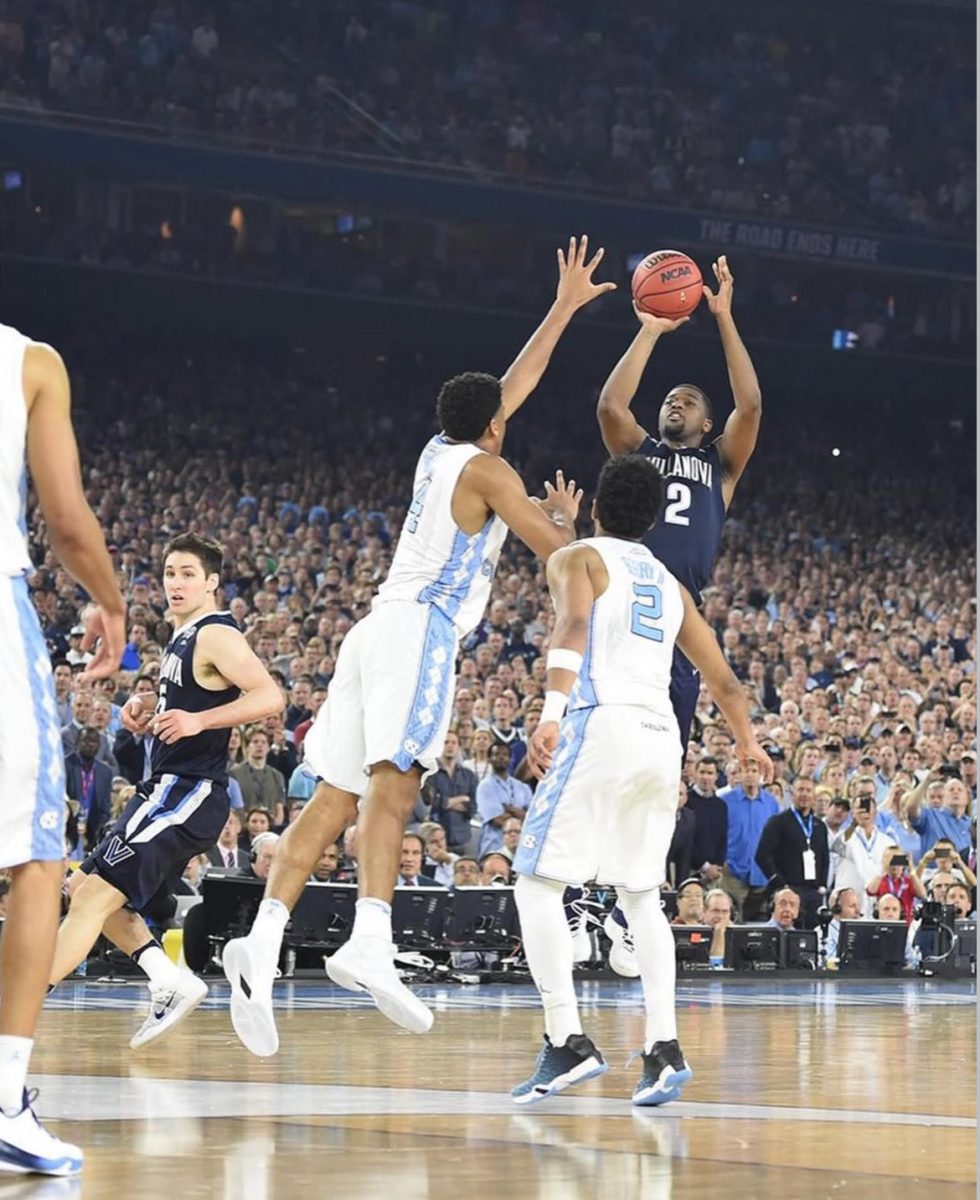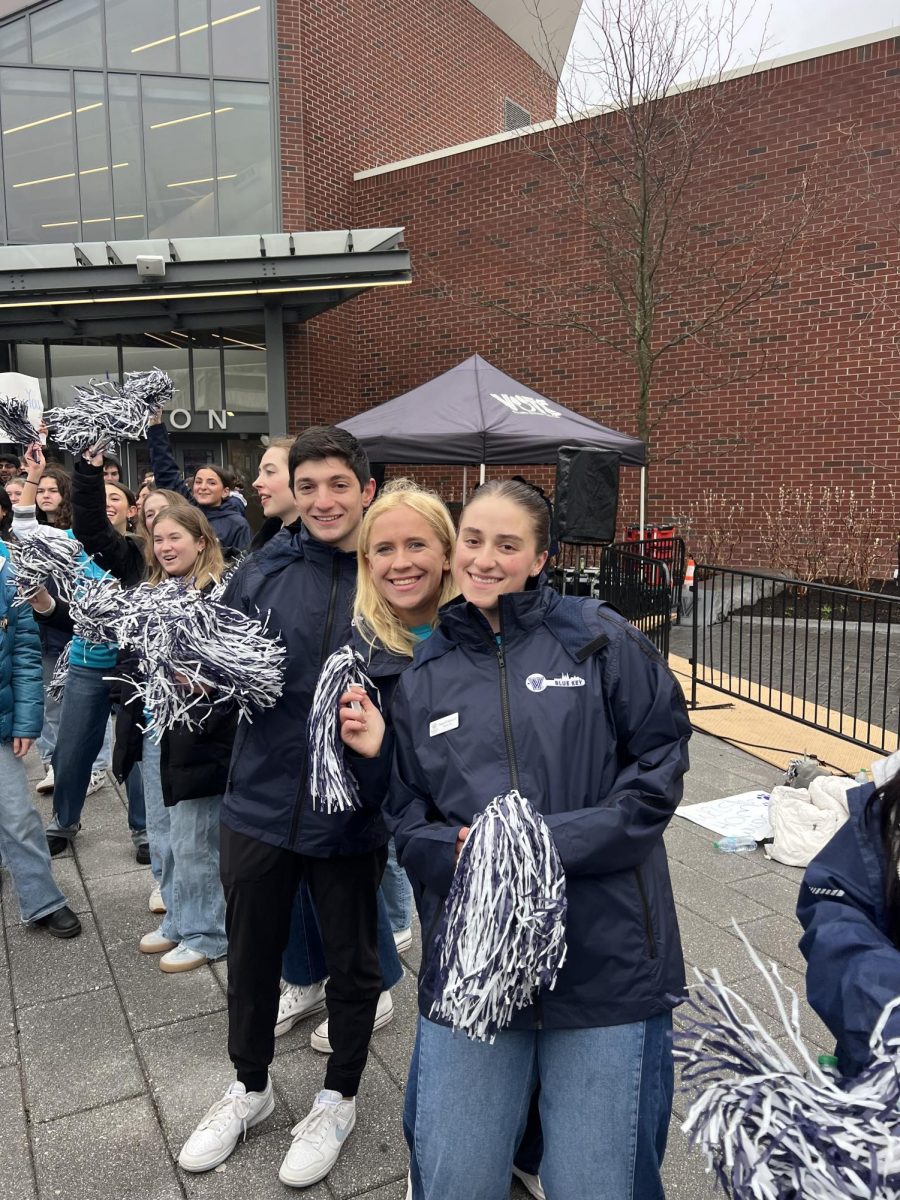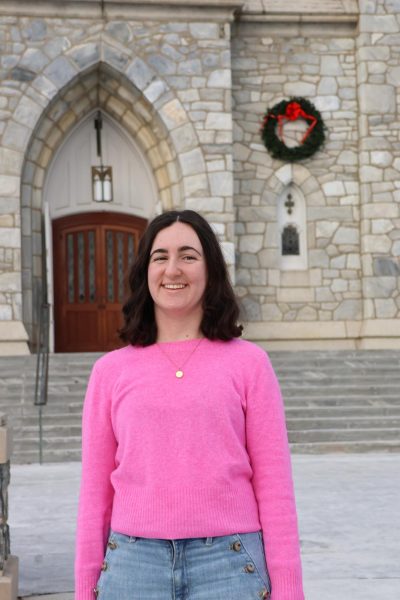On Monday, AT&T debuted a new commercial for March Madness. It features four Villanova legends known as the “Nova Knicks:” Donte DiVincenzo, Jalen Brunson, Mikal Bridges and Josh Hart.
The advertisement pokes fun at the New York Knicks trading DiVincenzo to the Minnesota Timberwolves in October, thereby breaking up the squad of former Wildcats. But its emotional appeal mostly comes from the nostalgia of Villanova’s 2016 National Championship, for which all four players were present, and some for the 2018 repeat.
The March Madness commercial also celebrates a program that will be absent from the NCAA Tournament this year.
The unique Villanova brand is, undoubtedly, still prominent in hoops pop culture. But Kyle Neptune and the Wildcats struggled to deliver the wins to match the hype during his three-year tenure as head coach, which ended on March 15.
Villanova men’s basketball is at an inflection point of contradiction. It must move on from the past in order to bring back the program’s historical success. Neptune isn’t completely to blame for what ended up being a disappointing season, despite spirited wins over conference foes UConn and St. John’s. But the last three sluggish seasons suggest that championships will only come Villanova’s way if it chooses to in some ways depart from a style that makes it hard to compete in today’s NCAA.
Expectations to replicate the enviable legacy of his predecessor, Jay Wright, weighed down on Neptune from the start as head coach. Apart from a 2021-22 head coaching stint at Fordham, Neptune had played a key role on Wright’s staff since 2013. Neptune was on staff to witness the two national championships, along with six Big East titles. In other words, he was indoctrinated into “the Villanova way” for which the school became known.
“I never focused on not being [Wright],” Neptune told The Villanovan as he took the helm in October 2022. “He was a Hall of Famer, to me, the best coach in college basketball the last 10 years. I would like to be a lot like him.”
While Neptune inherited a team coming off a Final Four run, he stepped into a college basketball landscape that looked increasingly unlike the one in which Wright thrived. Other coaches, including Wright, decided to opt out, but Neptune took the job just as sweeping change arrived.
Largely due to the rise of Name, Image and Likeness (NIL) and an unrestricted transfer portal, Neptune’s roster has looked dramatically different every year. Neptune sought out top players from around the country, who didn’t stay for long as is now commonplace throughout college basketball. 2023 Big East Freshman of the Year Cam Whitmore entered the NBA Draft after his freshman season. This year’s group will graduate some of Neptune’s best transfer portal recruits, including senior guard Wooga Poplar and graduate guard Jhamir Brickus.
The inconsistency over the last three years did not align with “the Villanova way,” which drilled players into prioritizing discipline and dedication to the program, fighting for minutes on the court from a redshirt freshman to star senior.
In the changing times, Neptune maintained the recruiting philosophy he followed under Wright.
“We haven’t changed our thought process in terms of recruiting [since 2021],” Neptune said to The Villanovan in November. “We try to recruit guys who we feel will fit Villanova as a whole, in terms of just our culture as a university.”
The most faithful returners, like graduate guard Eric Dixon, echoed Neptune’s commitment to maintaining the program’s culture and identity in the new season, even with another set of new faces on the court.
“There’s nothing really different [from when I started at Villanova],” Dixon said at the beginning of the 2024-25 season. “Our beliefs are still our core beliefs and still our core values. So I think that [Neptune] does a great job of keeping that the same for me.”
No university is immune to the new demands of NIL when it comes to maintaining a top basketball program. No matter how much Neptune understood Villanova’s system and cared about winning — memorably referring to every game as “our Super Bowl” — the pieces didn’t quite come together. Despite tournament-level talent, Villanova couldn’t put together the competitive season that fans, donors, and ultimately, the coaching staff needed.
Villanova still benefits from leaning on its strong base of successful alumni in its efforts to embrace the NIL era. General manager Baker Dunleavy ‘06, played under Wright, as did Randy Foye ‘06, who spearheaded the Friends of Nova external NIL collective. On the coaching end, assistant Mike Nardi ‘07 will take over for Neptune while the University carries out a national search.
The team is set to enter the 2025-26 season with a complete reconstruction: a new head coach, a new starting five and a relatively new athletic director, Eric Roedl ‘97.
“The job of a head coach has, in my mind, never been more challenging,” Roedl said in January.
Memories of previous success build excitement around Villanova but increase pressure on the instability in the current program to deliver the same results. There is not a Knicks logo in sight in the AT&T commercial, while blue-and-white Vs surround the NBA stars. At the end, Brunson tosses DiVincenzo a Villanova visor, as a Wildcat is always a Wildcat.
The level of school pride and success that surrounded Villanova men’s basketball in 2016 and 2018 could be only a new head coach and some tactical recruiting away. The short-lived Neptune era might just be the bridge between the old “Villanova way” and a new strategy that fully embraces the opportunities and the challenges of unstoppable change, but in Villanova style.







